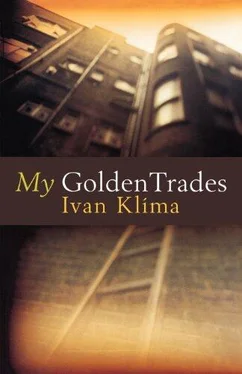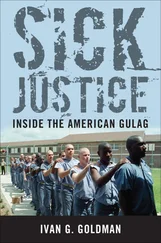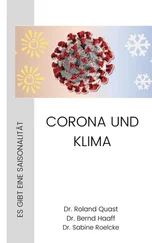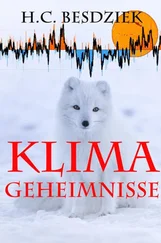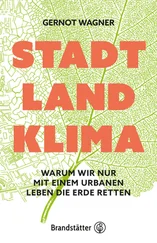Ivan Klima - My Golden Trades
Здесь есть возможность читать онлайн «Ivan Klima - My Golden Trades» весь текст электронной книги совершенно бесплатно (целиком полную версию без сокращений). В некоторых случаях можно слушать аудио, скачать через торрент в формате fb2 и присутствует краткое содержание. Год выпуска: 1998, Издательство: Granta UK, Жанр: Современная проза, на английском языке. Описание произведения, (предисловие) а так же отзывы посетителей доступны на портале библиотеки ЛибКат.
- Название:My Golden Trades
- Автор:
- Издательство:Granta UK
- Жанр:
- Год:1998
- ISBN:нет данных
- Рейтинг книги:4 / 5. Голосов: 1
-
Избранное:Добавить в избранное
- Отзывы:
-
Ваша оценка:
- 80
- 1
- 2
- 3
- 4
- 5
My Golden Trades: краткое содержание, описание и аннотация
Предлагаем к чтению аннотацию, описание, краткое содержание или предисловие (зависит от того, что написал сам автор книги «My Golden Trades»). Если вы не нашли необходимую информацию о книге — напишите в комментариях, мы постараемся отыскать её.
My Golden Trades — читать онлайн бесплатно полную книгу (весь текст) целиком
Ниже представлен текст книги, разбитый по страницам. Система сохранения места последней прочитанной страницы, позволяет с удобством читать онлайн бесплатно книгу «My Golden Trades», без необходимости каждый раз заново искать на чём Вы остановились. Поставьте закладку, и сможете в любой момент перейти на страницу, на которой закончили чтение.
Интервал:
Закладка:
I looked at the picture before me with astonishment and mistrust. Where had that face come from? From what depths had it emerged, and what did it have to do with any actual appearance? Had the visitor suggested it to me? Was I not merely depicting one of my own anxious, subconscious memories? I shoved the sheet with its portrait under a stack of scrap paper. I went back into the dining-room. 'Unfortunately,' I said, 'I really can't remember. Please go home. Perhaps your daughter is waiting for you already.'
'Do you think so?'
I walked her to the door.
'Who was that,' my wife wanted to know.
'Just a customer,' I said. 'She wanted me to draw her a picture.'
'At this time of night?'
'People are strange.'
'You see,' said my wife. 'I'm always telling you your pictures are good. They express. . '
'I know,' I interrupted. 'But that wasn't why. I'll explain tomorrow. '
'I keep thinking about the man down the road,' said my wife. 'He spent so many years building the house, and now, when he had finally finished. . ' And, she added, that kind of thing happens a lot. People who put an enormous amount of effort into achieving something often collapse when they finally reach their goal.
It's probably true. It must be awful to finish a work and then not have the strength to go on to the next thing. I imagined Mr Vondrák one evening climbing up to the highest stair in his new house, certain that he had spent the last five years wisely and well — the water wouldn't reach him here — and at that moment, he saw it: the sea he had tried to escape from, and for which he had had no time until now. It was here, its waves were rushing around his ears, and at that moment, his heart gave out.
A man should not build himself a house and, if he does, he should not complete that last step, because from that vantage point, he will see it.
Ecclesiastes writes about this:
I made me great works; I builded me houses; I planted me vineyards: I made me gardens and orchards. . Then I looked on all the works that my hands had wrought, and on that labour that I had laboured to do: and behold, all was vanity and vexation of the spirit. .
In some cases, people don't even begin the work before they realize that their strength has gone. They glimpse the sea and understand that they cannot swim across. The waves roar round them. They call for help, knowing that no one hears them, and give up. So they run into the woods, see a railway track, lie down on it and wait. That is their story — their one, unrepeatable story. Several sentences long.
Who will bury her? This disturbed me.
I slowly fell asleep. If the dead girl remained unidentified, I will take a stone and place it in the ground near the tracks. And I saw myself transferring her face, or what I think was her face, into a piece of granite. That much, at least.
Then I remembered the dead dove, the one that gave up this morning. I had picked it up, so it wouldn't just lie there on the asphalt pavement, and as I picked it up, the grey feathers fell from its body like autumn leaves from a tree, and I didn't know what to do with it, because I didn't just want to toss it, naked, into the dustbin. So I carried it to a patch of long grass that was growing beside the path, and I set it down there and watched the leaves of grass rise trembling above it, as if to cover its nakedness.
Ecclesiastes also says:
And whatsoever mine eyes desired I kept not from them, I withheld not my heart from any joy; for my heart rejoiced in all my labour: and this was my portion of all my labour.
The Archaeologist's Story
THE SUN HAD already warmed the caravan. I opened the metal locker where the workers usually put their clothes, and took out two paintbrushes, a scraper and a bundle of paper bags. I was thirsty. There was nothing to drink, but there were a few apples on the table that the foreman, Vítek, had brought from his garden. I slipped one into my pocket, took a bite of another and stepped out of the caravan with my small load. I hid the key behind one of the rear wheels — exactly the same place they hide the key from potential burglars in every caravan I've ever known— then I followed the path that wound among piles of excavated earth and puddles from the recent rains. From here you could see a spruce wood on the opposite hillside and practically all of the construction site, but you couldn't see the burial grounds. The metal shells of future buildings were radiating heat, and I was suddenly aware that the construction site, where at least a hundred people were supposed to be working, was silent, more silent than the burial grounds, where there are never more than five of us at any one time.
I had no particular feelings one way of the other about archaeology; it certainly wasn't one of my hobbies. In high
school, one of my classmates had longed to be an archaeologist. We were close friends for a while, and he would drag me around the old Celtic settlements near Prague. He even persuaded me to carry a small pick and trowel in my rucksack. Every so often we would dig a scrap of baked clay out of the ground, and my friend would lecture me excitedly on the people who had made it. Thanks to his enthusiasm, I knew something, at least, about the funnel-shaped-cup culture, the globular-amphorae culture and the scroll culture, the Řivna and Únětice cultures, and the people who made braided ceramics. But my friend was not allowed to study archaeology. His parents owned a small private laundry and at that time the authorities still took a dim view of such enterprises. Over the years, I had managed to forget almost everything he'd told me about ancient potters or Celtic settlements. All that remained in my memory were the poetic associations in the names of those ancient cultures.
History, on the other hand, has always interested me— and the mystery of where man first came from, where he made his first appearance on earth. I mean on the earth in general, and in particular in the place where I live.
The path led me alongside the portable units used by the construction workers. From here you could see the burial ground and the people who were working there: Lida, the archaeologist who was guiding our mole-like labours, her assistant from the museum, Petra, and the volunteer, Masenka, who at that moment was wheeling away a barrow-full of earth. She was the only person moving on the entire construction site.
In the portable changing-room there was running water. I squeezed between chaotic piles of scrap metal and lumber,
and past a table piled with yesterday's unwashed thermoses, filthy plates and utensils caked with old food. I found a half-empty glass of beer with a drowned wasp floating it in, poured the contents on the floor and stepped into the washroom. The water that emerged from the tap looked as though it were mixed with blood. Only one of the three sinks worked, and it did not seem that anyone had cleaned it in the two years the construction site had been there. It was covered with a layer of rust and slimy grease. I rinsed the glass out as thoroughly as I could and filled it with water.
We don't know a lot about the Celts who once lived in our country; that much I learned from my high-school classmate. They left no written records. Caesar, who fought the Celts for many years, tells us that Celtic priests — the Druids — considered it a sin to put down anything of what they knew in written form. What we know about them was passed on to us by others — by foreigners or enemies like Caesar, who also tells us what is so often repeated about the Celts, that they were an immensely religious people who believed in the transmigration of souls after death, and who worshipped their gods with human sacrifices. Natio est omnis Gallorum admodum dedita religionibus. . aut pro victimis homines immolant aut se immolaturos vovent. . But I certainly wouldn't want the main written evidence of our own lives to come from the notebooks of some marshal who happened to be commander-in-chief of an invading army.
Читать дальшеИнтервал:
Закладка:
Похожие книги на «My Golden Trades»
Представляем Вашему вниманию похожие книги на «My Golden Trades» списком для выбора. Мы отобрали схожую по названию и смыслу литературу в надежде предоставить читателям больше вариантов отыскать новые, интересные, ещё непрочитанные произведения.
Обсуждение, отзывы о книге «My Golden Trades» и просто собственные мнения читателей. Оставьте ваши комментарии, напишите, что Вы думаете о произведении, его смысле или главных героях. Укажите что конкретно понравилось, а что нет, и почему Вы так считаете.
